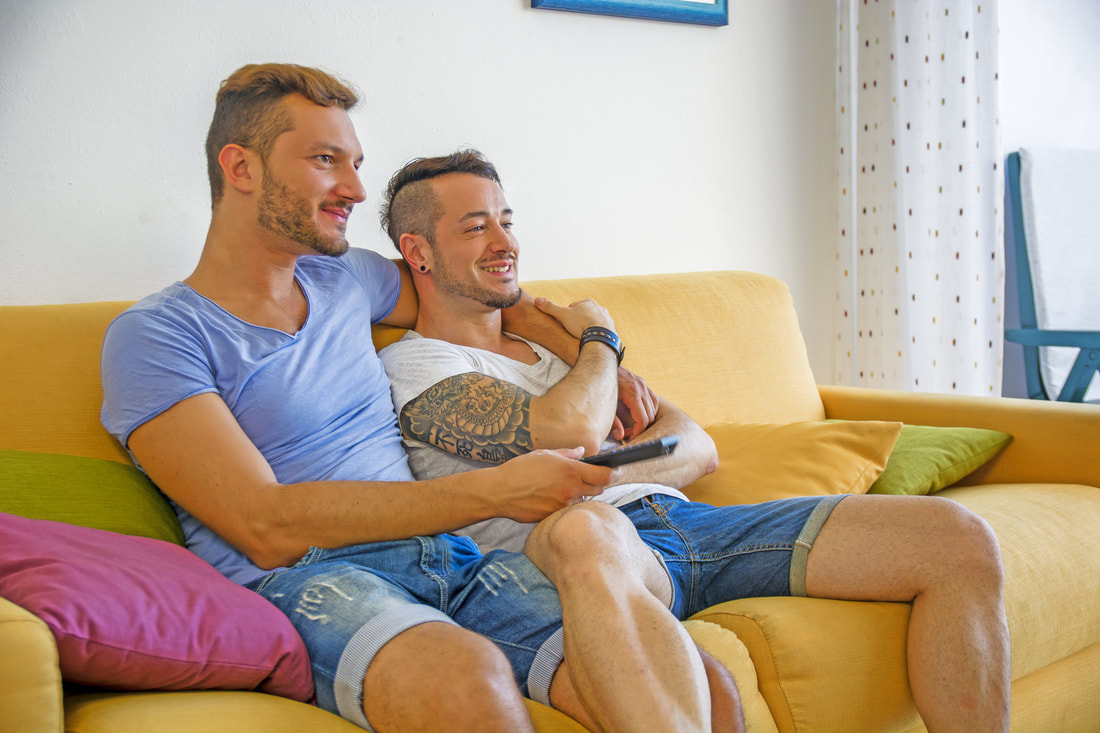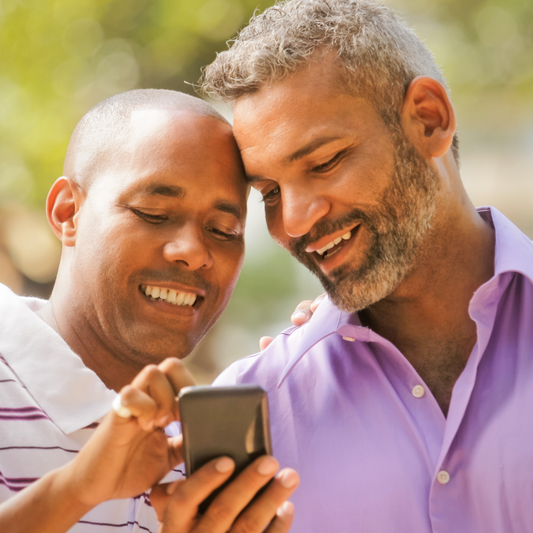How are LGBTQ Break Ups Different?Remember the exquisite pain of your first long-term relationship break up? Going through the ending of a significant relationship can be exponentially more difficult for LGBTQ people, having been rejected, demeaned and devalued by society-at-large and too often by our family of origin. Case in point: At age 20, I was kicked out of my home for being gay and for being in-love with my first boyfriend. I moved in with him and over the six years we were together, his family became my adopted family. I fondly recall at our commitment ceremony (it was in the early 90’s) when his ex-marine father gave a heartfelt and tearful speech about how instead of looking at having a gay son as “losing a son, he gained a son.” I remember the international travel, holiday events, buying a home together, adopting a Labrador Retriever and then one night, being blind-sided that he wanted to break up. I felt the devastating blow of not only losing my best friend, my lover and a fellow adventurer, but also the loss of his loving and fun-filled family. It was grief compounded on grief. I literally felt my breath taken away like someone punched me in the stomach. Panic set in. Self-criticism set in. Hopelessness set in. The future I had constructed and the stability I thought I had, came crashing down all at the same time. Pain sound familiar? And it’s not like break-ups get any easier over time. The ending of my second six year relationship felt just as devastating. I had a few more coping skills but the pain was just as intense. Why is it that we suffer so much?I’ve had a life-long fascination with how we tick as human beings, hence my interest in becoming a Licensed Marriage & Family Therapist (LMFT). Of all psychotherapists, LMFTs get the most training and education in relationships — looking at mental, physical, and emotional health through the lens of relationships. This includes our relationship with ourselves in addition to our relationship with others. As LGBTQ individuals we have too often lacked basic validation for our inherent worth and value, a felt-sense that is essential for healthy development. In addition, many of us have also been bullied by the gender(s) of our attraction. So we often seek relationships to heal us from this lack of validation and from attacks on our very being-ness from a group of people that have also historically harmed us. While we are hurt AND we are healed in relationships, we often come to the starting gate from this one-down position. Thankfully we are also resilient and have a great capacity for love and compassion. While it’s risky being vulnerable in relationships — whatever form they take — it’s also tremendously rewarding. It’s through our relationships that we work out our insecurities, work out stuff we’d rather not admit to, and hopefully learn to become more real, more loving and more empathic as human beings. But this does not seem to matter when we’re in the thick of grief, anger, hopelessness and self-doubt that so frequently accompanies break ups. I remember being in a bookstore after my first break up, when the words of a book jumped out at me, “When Things Fall Apart: Heart Advice for Difficult Times,” by the Buddhist nun, Pema Chödrön. This book became my God-send…or maybe Buddha-send would be more appropriate to say. Her down-to-earth wisdom taught me how to lean into the hurt, the pain, the grief and breath out cool comfort and relief. She taught me how to use pain as a perfect, albeit excruciating at times, opportunity for growth. Having gone through this dark night of the soul a few times, I’m genuinely forever grateful for my relationships for being such potent teachers and healers. How do we recover from a breakup?Sometimes no matter what anyone says or does, we just have to feel the depths of our feelings for a period of time. This is about giving space for all of our feelings to show up, not over-indulging in them for too long and not denying or ignoring them altogether — a delicate balance when talking about grief. We also can notice that they come in waves, sometimes with increased intensity while at other times receding into calmer tides. These ups and downs can make us feel like we’re going crazy but the more we relax into them and see them as typical responses to grieving, the more they can help us heal.
When we mindfully and non-judgmentally look at our internal landscape, we can discover the roots of our pain which can be linked to the roots of our oppression as LGBTQ individuals. We can unearth the profound ways we’ve been traumatized by society at large, as their scapegoats. We can reclaim our right to exist. We can re-empower ourselves in ways we may have lost before. It’s a time for self-reflection. What was my part for why this relationship ended? What are ways I can be a better partner the next time around? How can I choose my partner(s) differently? What are my repeating patterns in relationships? It’s also particularly useful during the healing process to take better care of ourselves through good nutrition, adequate sleep, regular exercise and spending time with trustworthy friends/family. We need to have energy from consistent nutrition, more stabilized mood/energy from adequate sleep, anti-depressant hormones produced through exercise and surround ourselves with people who get it and can support us through the process. Grief takes the time it needs to take. There is no one right way to grieve and no one right amount of time it should take. Often those around us want us to feel better as quickly as possible. They love us and also probably don’t want to feel the discomfort of what we’re feeling. We may hear advice to have sex, date or the oh not so helpful, “Just get over it already.” We need to pay better attention to our needs, our pacing and our ability to begin a new relationship. Most importantly, this is a time to feed ourselves emotionally with love and compassion for what we’re going through, mistakes and all. This article was originally published by THE FIGHT Magazine, February 2017.
5 Comments
2/17/2019 06:48:15 pm
I ended a 25 year relationship with the love of my life
Reply
3/11/2022 03:27:16 am
You made a good point when you discussed you should spend time with reliable friends or family when going through the healing process. My friend got depressed after the breakup he had with his long-time partner. I think having a breakup recovery coaching is the best professional help he needs to recover from the pain.
Reply
12/1/2022 12:40:55 am
I never took into account the fact that there is a lack of basic validation in LGBTQ individuals when it comes to their worth and value. In that case, it would be a good thing to have an LGBTQ therapy session with an expert when you have no one else to talk to. For me, no matter your condition or situation, you definitely deserve help to have a better quality of life and actually enjoy the moments you have with the ones you love.
Reply
Leave a Reply. |
Categories
All
Archives
March 2022
�
|



 RSS Feed
RSS Feed